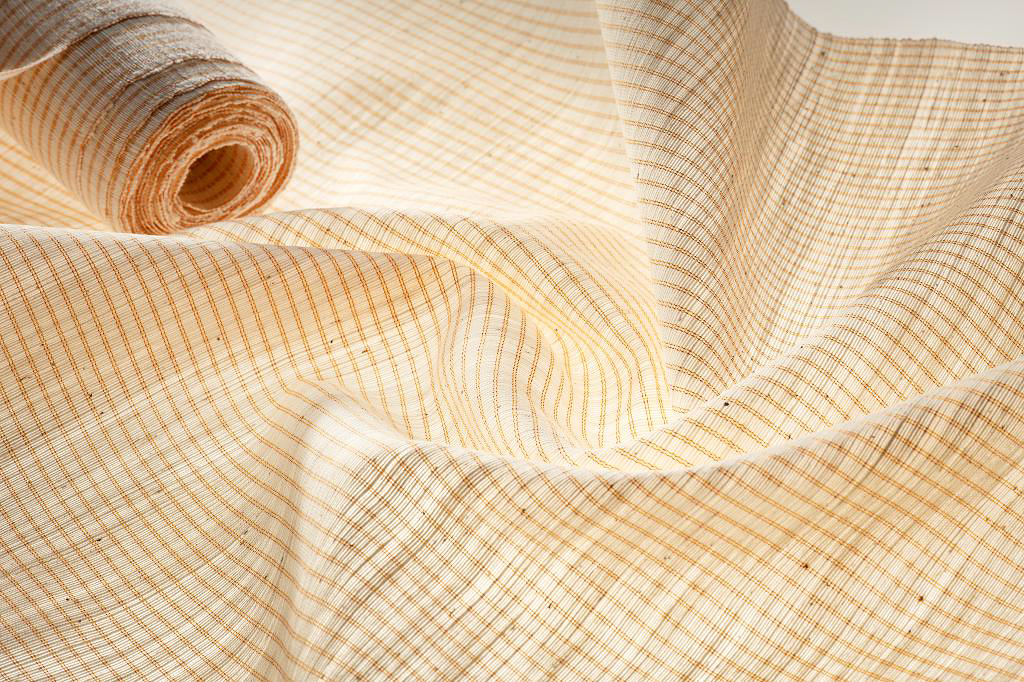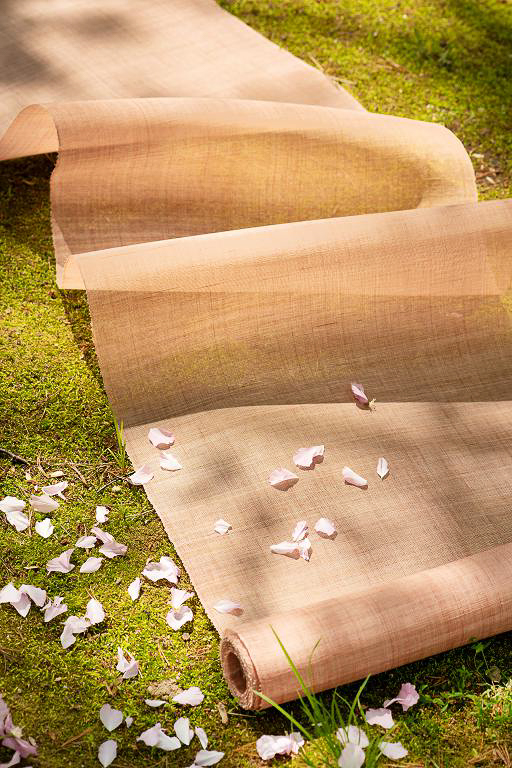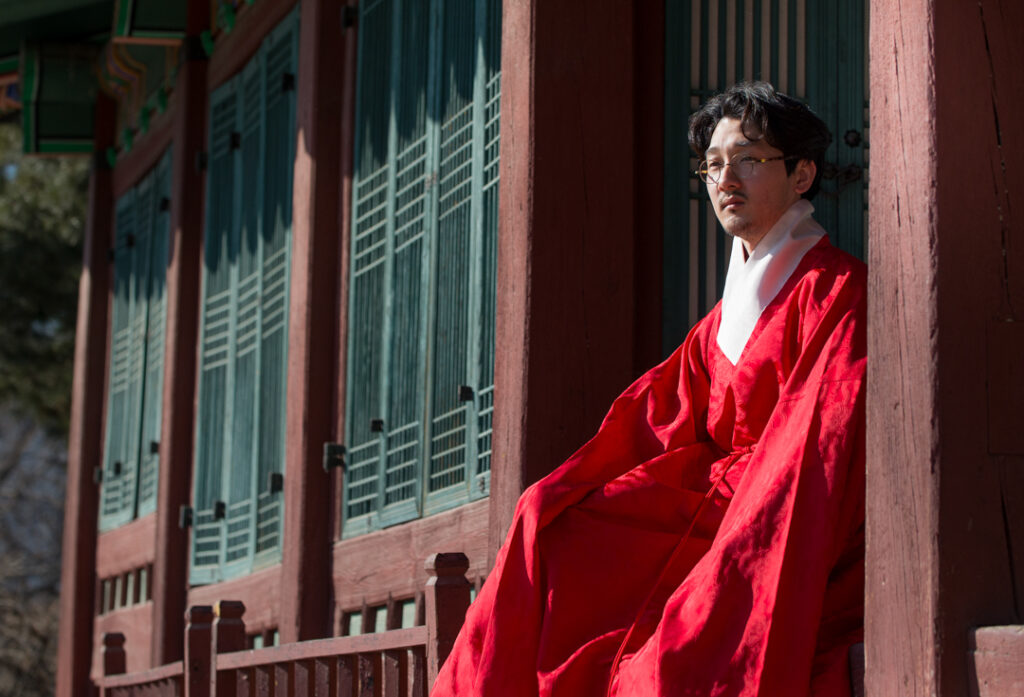
Lee Ji Won (이지원) is a young Korean weaver who revives traditional East Asian textile techniques.
Lee Ji Won is profiled by the newly created Textum Club in South Korea:
The artist bases his work on traditional techniques and natural materials, engaging in various weaving projects. In particular, “Kyojig (交織, mixed-fiber weave) of the Joseon Dynasty” is a key theme and driving force in the artist’s creative process. Kyojig is an ambiguous term that encompasses both the “verb” of mixing threads in weaving and the “noun” of the resulting fabric. When threads are mixed together, the fabric exists in a dual state, neither fully “this” fabric nor “that” fabric, always remaining on the “borderline.” The artist has been drawn to this “borderline” and has explored kyojig for a long time. Even now, the artist focuses on the theme of “what once existed but no longer does,” while creating “what exists now but did not in the past.”

For the artist, fabric as a finished work represents completion, while fabric as material marks a new beginning. Weaving, to the artist, signifies both an end and a beginning. This is why the artist often compares themselves to a farmer. A farmer tends to their crops with all their strength, yet at times entrusts them to nature. After a long process, when the fruits are harvested, the farmer’s duty is fulfilled. Just as harvested ingredients can be transformed into various dishes through the hands of many, the artist hopes their work will similarly be reborn into new results.

Follow @antiqus
Textum Club is a research group dedicated to practices and publishing in fashion criticism based in Seoul. Derived from the common roots of ‘textile’ and ‘text,’ meaning ‘to weave,’ Textum Club introduces books and articles related to critical fashion as part of its fashion criticism archive. It was founded by Seonhee Kim, Yeonwoo Kim and Hyerim Hwang. Visit textumclub.com and follow @textum.club


